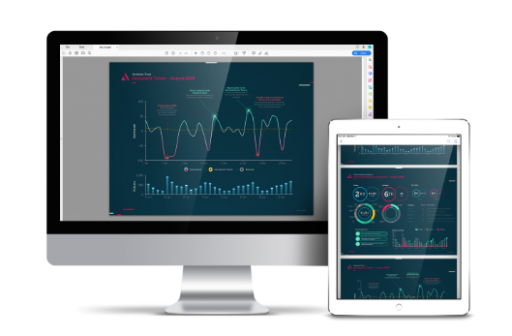Stakeholder capitalism: Why should business leaders care?
The rise of stakeholder capitalism in an increasingly challenging reputational environment should be an important consideration for the c-suite in their short and long-term strategic planning.
Alberto Lopez Valenzuela, CEO, alva, chaired a panel discussion on this subject at the recent CogX Festival in London, a conference for CEOs, activists, entrepreneurs, artists, policy makers and investors. Their focus – why business leaders should care about stakeholder capitalism.
The panel discussion at CogX
The panel considered how businesses can use stakeholder capitalism and ESG to create shared value via profit and social good. But Alberto also wanted the panel to address the critics of stakeholder capitalism and ESG.
Alberto was joined by Caroline Gorski, CEO of R 2 Factory at Rolls-Royce; Dr. Márcia Balisciano, Global Head of ESG and Corporate Responsibility at RELX; and Robin Nuttall, Partner and Regulatory & External Affairs lead at McKinsey & Partners.
Opening the session, Robin gave a brief overview on stakeholder capitalism and the rise in responsible investing. “It’s a $48 trillion-dollar market in the United States and is growing by 20% per
annum,” he explained. He added that stakeholder capitalism allows corporations to “set up a more successful business by integrating environmental and societal needs into the core of their business”.

Is sentiment towards stakeholder capitalism changing?
Due to the kind of benefits that Robin pointed to, stakeholder capitalism and ESG are accepted in many circles as a force for good. Commentators agree that they produce positive societal outcomes for communities and the environment.
Despite this, there has been growing criticism of the movement. Alberto addressed this negativity and the fact that stakeholder capitalism is increasingly being characterised as ‘woke’.
Márcia had her own take for the critics. “If you are concerned about being a sustainable business in the longer term, then stakeholder capitalism will have a positive impact on stakeholders, employees, communities, NGOs, and the Governments that are interested in regulating businesses.”
The importance of authenticity
Core to this positive impact is authenticity. The last few years have taught us that being an authentic business with a strong ethical purpose, one that listens to all those within its sphere of influence, is critical for long-term success. Especially when brand perception and equity among stakeholders can change overnight.
“Without authenticity, your business could unravel in the hyper-transparent world that we live in,” said Robin. Authenticity allows businesses to stand a better chance of employees and other
stakeholders becoming advocates, allowing companies to amplify their stakeholder leadership. And yet, there is a tendency among business leaders to treat stakeholders as antagonists – this is a
mistake because most stakeholders are pragmatic in their viewpoints. Having a good understanding of stakeholder views and taking them into consideration will set businesses up for long-term success. That’s where technology and data come in.
The influence of technology
The acceleration of technology in the modern world has resulted in the rapid rise of stakeholder capitalism and, according to Alberto, “has evolved in a way to become a force of positivity”.
Caroline agreed about the importance of technology in the rise of stakeholder capitalism.
“Technology has made it possible for a far greater democratisation of both information and discussion, and has contributed to a massive spike in additional scrutiny from increased exposure,”
she said. She added that it has not only been important in the dissemination of information, but has also been instrumental in helping companies behave in more stakeholder-focused ways.
“Technology can also underpin some of the actions that we as corporations might need to start taking to really look at some of the systemic-level changes that we need to make across whole value pathways and exchanges – not simply within the confines of our own four walls.”
How data can help to drive stakeholder capitalism
Data can be overwhelming for business leaders, and it is often challenging to dissect the data we are presented with. However, new advances in AI can help businesses to process data to drive
stakeholder intelligence.
Data science is a particularly useful tool in producing positive ESG outcomes, which Caroline illustrated through the example of the Emergent Alliance. She explained the alliance: “Emergent is a
collaboration of more than 50 organisations across the world, which have shared data, data science, resources, and technology to create models that helped governments and businesses respond faster to the green shoots of recovery during the pandemic.”
Data can also help consumers and stakeholders make better choices, and that is driven by Artificial Intelligence. Márcia illustrated this through a tool called Cirium which uses AI to analyse information on daily flights and deliver its carbon data much more accurately. She explained: “This tool can for example tell us which flight is more carbon friendly and whether people are choosing to take these flights.”
The future of stakeholder capitalism?
Some commentators view the rise in stakeholder capitalism and ESG as a distraction from focusing on shareholders, but the panel at CogX agreed that it enables businesses to be more authentic and driven by a purpose-led mission.
By engaging with stakeholders and understand their views, businesses will be able to build long term business objectives that produce social value. But to understand stakeholders most effectively,
businesses need to draw on the benefits of data and AI technology.
As Caroline said in her summary, “the issue is not one of too much data, but that data is locked away in formats which are not always machine understandable.” It’s time to start unlocking.
Be part of the
Stakeholder Intelligence community









